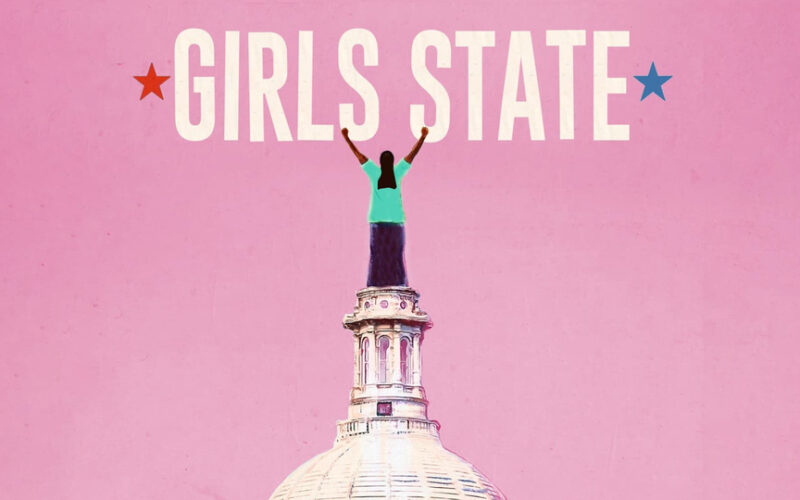Girls State (McBaine and Moss, 2024)
Girls State is the opening night film at this year’s Full Frame Documentary Film Festival, giving Triangle audiences a chance to catch it on the big screen before it drops on Apple+.
Co-directors Amanda MacBaine and Jesse Moss are steadily establishing themselves as the most dependable team in the genre. (MacBaine was listed as a producer for The Overnighters before sharing director credits for Boys State and The Mission.) Of the four titles the pair is best known for, Girls State is, in my opinion, the most satisfying, because its subjects wrestle with ambiguities rather than simply embodying them.
The fact that The Mission had one central test case made its neutrality feel affected. The contrast between the missionary impulse and the anthropological concern for non-intervention was a worthy topic, but the case study at its heart seemed hardly representative. In Girls State no one participant becomes the focal point of the film’s themes.
Girls State will play at Fletcher Hall at 8:00 p.m., Thursday, April 5. The film will also be available to subscribers of Apple TV+ later this month.
It may be, too, that the young women in Girls State (yes, I believe the film is well aware of the irony of its title) are more introspective and reflective than most of the young men in Boys State. Whether this difference is ultimately attributable to gender is open to interpretation. This film is in Missouri rather than Texas, and it takes place several years after the Boys State documentary, meaning we are in a different phase of political and cultural wars.
From my vantage point, Girls State is also a more editorial film than some of the pairs’ previous works. It’s hard to miss the point that the outcome of mock elections are very different from the outcome of scholarship awards and mock judge appointments. While the documentary has a verite feel, there is editing at play here — there has to be. What we are shown of the scholarship interviews and the way judges are picked is narrowly limited, making the outcomes somewhat surprising. Is the point here that one of the most important lessons the participants are learning is that power isn’t always earned or seized but sometimes given? (And by who? There is some questioning of the organizers here, and it’s tough to know how much the presence of the cameras influenced the participants.)
All that being said, the documentary works exceptionally well as a microcosm of the sorts of interactions and conflicts that play out every day on a national or global scale. It’s not exactly new that there are inequities in the way most parts of society are structured. What makes the film work is that it thinks it is breaking that news. Rather it is showing how people who live with it attempt to balance addressing and changing the system without becoming enmeshed in it to the point that they lose parts of themselves.

